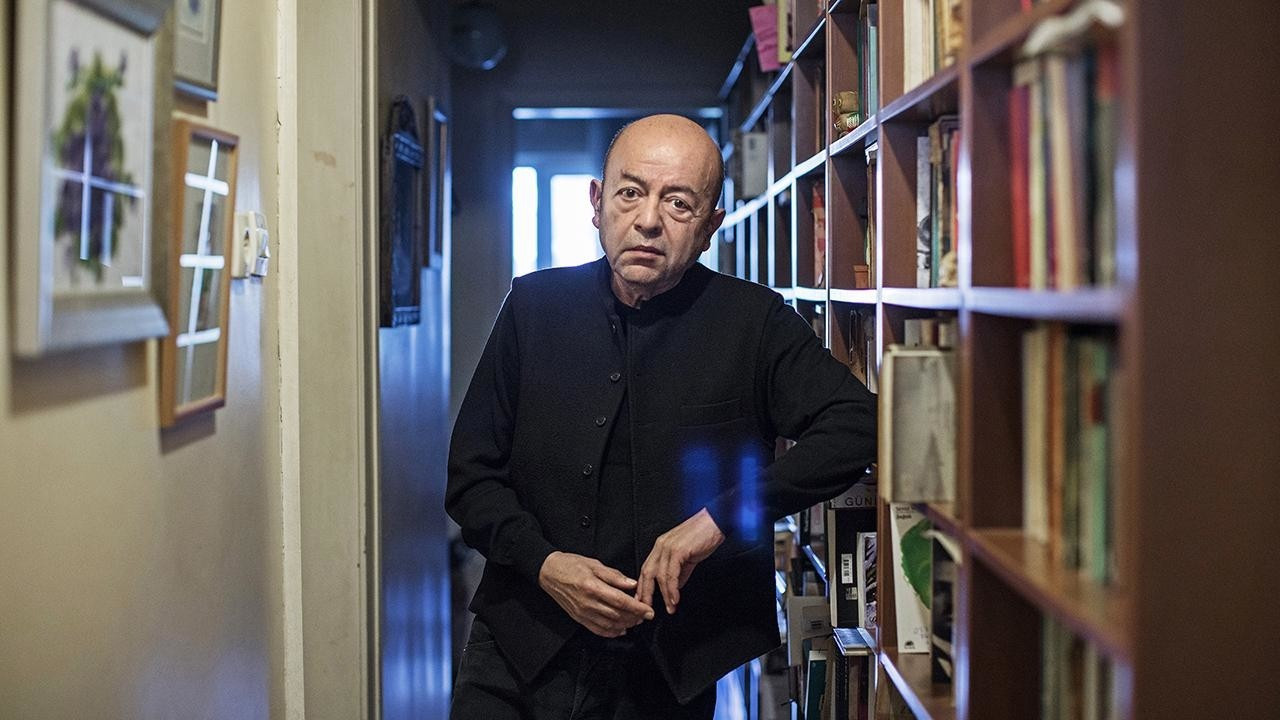Selim İleri: Both very crowded and alone in universe
I think Selim İleri has a special place in our generation, who spent their childhood in the 1980s and became his readers in the late 1990s and 2000s. Our conversations with my generation who read his books are still lively. One of my friends summarized Selim İleri perfectly: “This man is both like us and not like us at all.” He made us rehearse the loneliness of the life ahead of us with his books.
You can't say goodbye to a deceased loved one for a long time in front of crowds, in front of everyone. Your wishes don't matter when the funeral is over.
Time had its own way on the day we buried Selim İleri. After he is buried, the realization of the situation that cannot be changed begins. One realizes that it will take days, months to say goodbye. And the fact that there is not yet a tombstone, written Selim İleri on it, does not change this fact. Who knows how many ways of saying goodbye there are in life. Obviously, I will go through many of them too.
The day after the funeral, I found myself watching one of his favorite movies, The Incredible Shrinking Man. In 2021, during one of our meetings with Selim İleri, he had a clot in his brain, and then the process of illness and hospitalization began. After coming face to face with death and when the hospital days were over and he returned home, he wanted to talk about this whole process and his reckoning with life through literature. This is how Düşüşten Sonra (“After the Fall”), which we wrote and talked about together, came into being.
It was in this book that he talked about The Incredible Shrinking Man, which he had watched at the Sinematek in the 1970s. The story of the man who felt “all alone in the universe” was one of the first things he pulled out of the past of his life that changed after the illness. In the movie, a man who is accidentally exposed to radiation starts to shrink rapidly. He shrinks and shrinks and becomes a finger-sized man. “In the end, he disappears, his voice puny, himself shrunken!”
The last scene of the movie shot in 1957... He remembered: “In the last scene, he is alone in the garden, looking at the night sky: Endless stars... He thinks, dreams, hopes for a more benevolent universe. He cries out to God, he is alone now, without a before or after, just like every one of us. But the hope for a better universe seems to speak of today, the hope of all of us. I was struck when I saw it, again today...”
I'm watching that scene... The man realizes in the last scene how close the small and the infinite are to each other and discovers that they are the extremes of the same concept.
I think of the little children in Selim İleri’s stories. Sometimes holding their mother's hand, sometimes sitting alone under a linden or magnolia tree. I think they are all the same children. Children who are strangers to the world, even strangers in the world. I think of these little children and Selim İleri. Stacks and stacks of images flow. Then suddenly a memory. The detail on the cover of Düşüşten Sonra, made by Füsun Turcan Elmasoğlu... On the back cover, a child wearing overalls-shorts with crossed straps, his back turned to us. Selim İleri is struck by this detail... The images flow, flow... His beloved Sait Faik appears. İleri telling that when he was writing Cumartesi Yalnızlığı (“Saturday Loneliness”) and Hüzün Kahvesi (“Coffee of Sadness”), he used to compare himself to Sait Faik, but then he started not to compare himself to him...
A moment from the days when we studied the book on that tiny balcony. He says: “(...) I thought that I was not as sincere a person as he (Sait Faik) was. It takes courage to understand emotions. I covered it up. I took refuge in some worthlessness and hypocrisy under the name of values; if you can call this self-injury taking refuge. That is, I wounded myself. That's why I realized that it was impossible for me to be like Sait Faik. I couldn't show this courage either in writing or in life. I covered everything up. The reason for this is covering up, not being able to live a full life. Taking refuge in alcohol and cigarettes... Sait Faik took refuge in them and died from them anyway. Who knows how much he suffered? But he still wrote the poetry of loneliness. I tried to write it, but I always disguised it in other identities.”
I saw a life surrounded by literature up close for the first time in Selim İleri. I think he has a special place in our generation, who spent their childhood in the 1980s and became his readers in the late 1990s and 2000s. Our conversations with my generation who read his books are still lively. One of my friends summarized Selim İleri perfectly: “This man is both like us and not like us at all.” And he offered us no other prescription than literature. It was Selim İleri who understood us. Fortunately, he used to say that it was our generation that understood him. Selim İleri was one of our best literary figures in touch with the generations after him. When I started reading him in my twenties, I rehearsed the loneliness of the life ahead of me with his books. In fact, we all did. I don't think it was a coincidence that we met with his texts that always stood against polarization and tried to relieve the pain of intimidation with literature. We looked for him, we found him.
The dead... Life is no longer their affair. Therefore, those of us who are left behind are alone with our own rawness, intolerance, polarization. We pounce and pounce on each other. In this great turmoil, those who have a bookshelf are lucky. Those who have Selim İleri's books in that library are even luckier.


 Renowned Turkish novelist Selim İleri passes away at 75Culture
Renowned Turkish novelist Selim İleri passes away at 75Culture